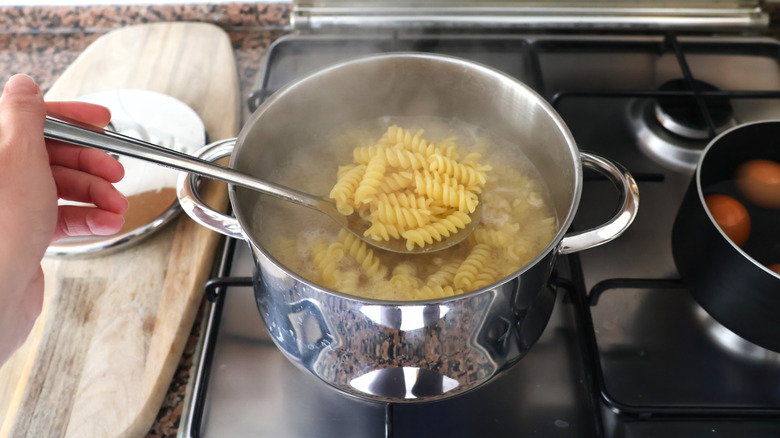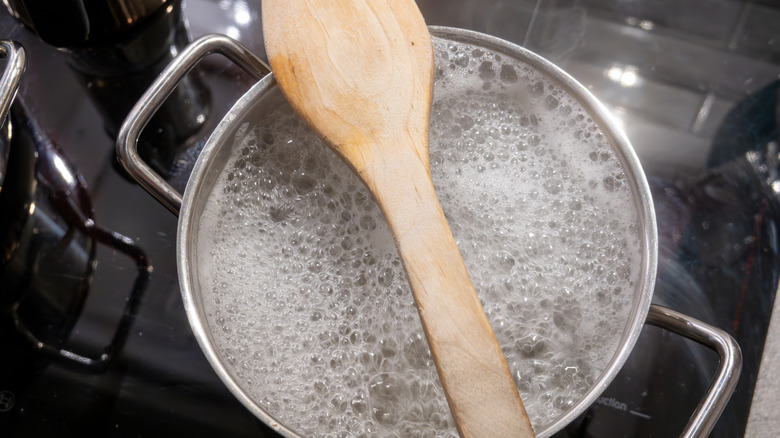Unless You Want A Huge Mess When Boiling Pasta, Keep The Lid Off The Pot
Your pot of salted water finally hits a rolling boil, and you're ready to cook your noodles to a perfect al dente. You toss in the noodles, throw away the box, and turn around to see the lid rattling and water spilling over. A starchy mess of piping hot water is the last thing you want to deal with while trying to get dinner ready, but that's what happens if you leave the lid on the pot while the water's boiling.
That lid is essential to get your water boiling faster to trap in the heat, but after that, you'll want to leave it to the side. Once you drop any starchy food in boiling water, you have to keep an eye out for the bubbles. The pasta releases starches and proteins into the water, which coats the bubbles created by the boiling water and makes them less resistant to bursting.
These bubbles then form a layer, which stacks up and flows over the edge of the pot in the blink of an eye, especially if the lid is on. It's important to keep one hand lowering the temperature gauge and the other stirring the pot. Even if you have the lid off, you'll end up with a foamy mess if the temperature is too high.
Tricks to tame the boil
There are several tricks to prevent your pot from boiling over while cooking. The easiest way is to use a pot that's big enough to hold four quarts of water per 16 ounces of dried pasta. What you're looking for is to have 1 ½ to two inches of water above the pasta so the noodles have plenty of room to dance around. You'll still get the bubbles, but you'll have more time to pop them while you stir.
Adding a splash of oil helps, too. This well-known trick keeps the bubbles from sticking together and slows down the stacking process, but it won't prevent your pasta from clumping together (and in fact, some consider it a mistake that ruins pasta every time). Using that method and balancing a wooden spoon across the pot, which helps absorb some of the heat and pop bubbles, should give you just enough relief so you can focus on your homemade pasta sauce. Now that you have that process down, just remember not to dump your pasta water; you'll need that starchy, salty pasta water to make your sauce silky smooth.

